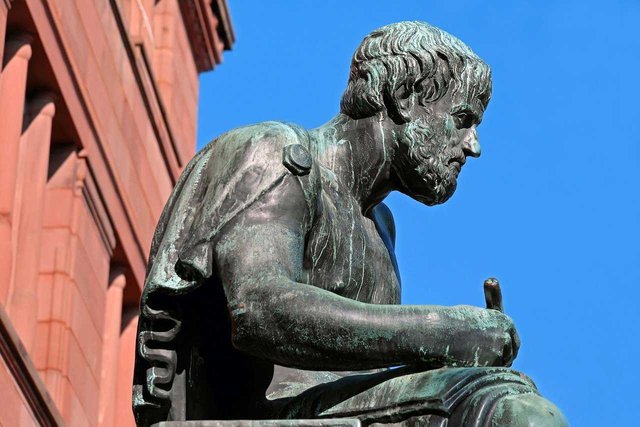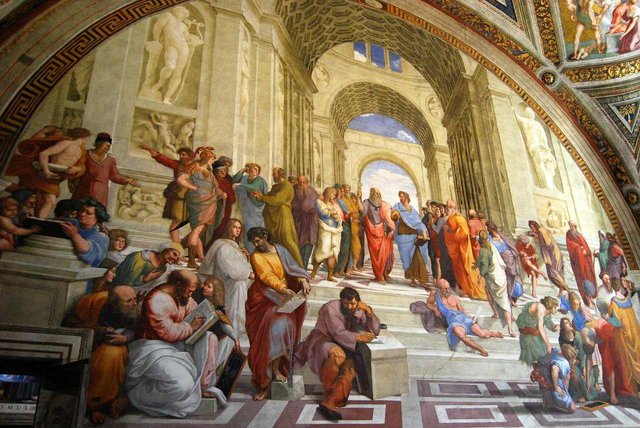Zoon Politikon: Man is a political animal

There are theories on how the society came to be. Aristotle's Politics serves as one of the earliest answers on how society was formed.
Political scientist and socia-political philosophers who came after Aristotle theorized on how society was formed. Most popular of such theories is Social Contract Theory which Thomas Hobbes was the major pioneer.
Social contract focus was on how man life was solitary, brutish, nasty and short due to man's ego to accumulate everything for himself. It was an era where no life was safe, no property was safe. To secure both life and property, people reached a contract and concentrated their power, will and freedom to own everything, kill and the rest in the hand of a representative called the Leviathan (in the case of Hobbes).
The social contract theory only did an advance explanation of Aristotle's claim that man formed rules, live in a community/society (which he called the polis), communicate and interact with fellow man and above all, he is not self sufficient.
Aristotle was a student of Plato who was himself influenced by Socrates. While Socrates shifted from mythological era to morality, Plato talked more on spirituality - his world of forms. Aristotle on the other hand talked about the two and reject most of Plato's views about world of forms.
In his Politics, Aristotle maintains that man is a political animal who organise themselves into groups with leaders, rules, principles and ethics.
Nature, he argues, equipped man with speech which enables him to communicate moral concepts like justice which is the foundation of a society.
Aristotle, like the Social contract theorists after him, argues that society exists by nature. Naturally, man loves grouping themselves into communities. This, he argues, explains why man cannot live outside the society.
Similar to the the position of the social contract theory after him, Aristotle maintains that our legal system makes man just and virtuous. This laws lift man from savagery and bestiality.
To explain his position that man is Zoon Politikon, Aristotle maintains that man is not self sufficient and cannot live without interacting with fellow man.
On the idea that man is not self sufficient, he argues that no man can adequately and effectively provide for his need without the help of others.

No man can be a tailor, carpenter, barber, hairdresser, trader, manufacturer etc, at the same time.
Simple economics taught us that human wants are insatiable. If this is true, then how can a single man get these things on his own with his own power?
If you are a farmer for instance, you need to wear cloth and can only get that from those who make cloths. To get it, you need to engage in a trade by barter - exchange your farm produce for the cloths or simply pay using money to get the cloth. Similarly, someone who needs your farm produce will get it by providing you with what you don't have or via money.
Whichever way you look at it, we all need each other to meet our daily need and that can only be gotten if we associate with one another.
On the interaction, we need someone to communicate with. We need social interaction, and gathering. We need to come together to formulate and enact laws for the growth of self and the society.
We need to decide who leads and the qualities such leaders must possess. All these can only be done through association and interaction.
So the idea of being apolitical is pseudo because no one can do without interacting and associating with one person or the other. Doing this means you are a political animal.
So for Aristotle, man is a being that can't do without communicating and associating with one another.
A vivid example in the 'person' of Robinson Crusoe suggests clearly that a life outside society is practically impossible. Crusoe faced cannibals, wild animals and had to run from one place to another. Even when he had much food stored in clave and even built himself 'mansion' in the bush, he was constantly looking for a way to go back to England.
A life outside communal settings is indeed solitary, brutish, nasty and short.
From the above account by Arsitotle, it is clear that we all have needs that can't be satisfied except we interact and exchange what we have for what we don't have.
It also shows that we cannot live in isolation and refuse to communicate with fellow man.
Man, by virtue of the above discussion and argument by Aristotle, is a political animal.
Thanks for your time. I am @smyle